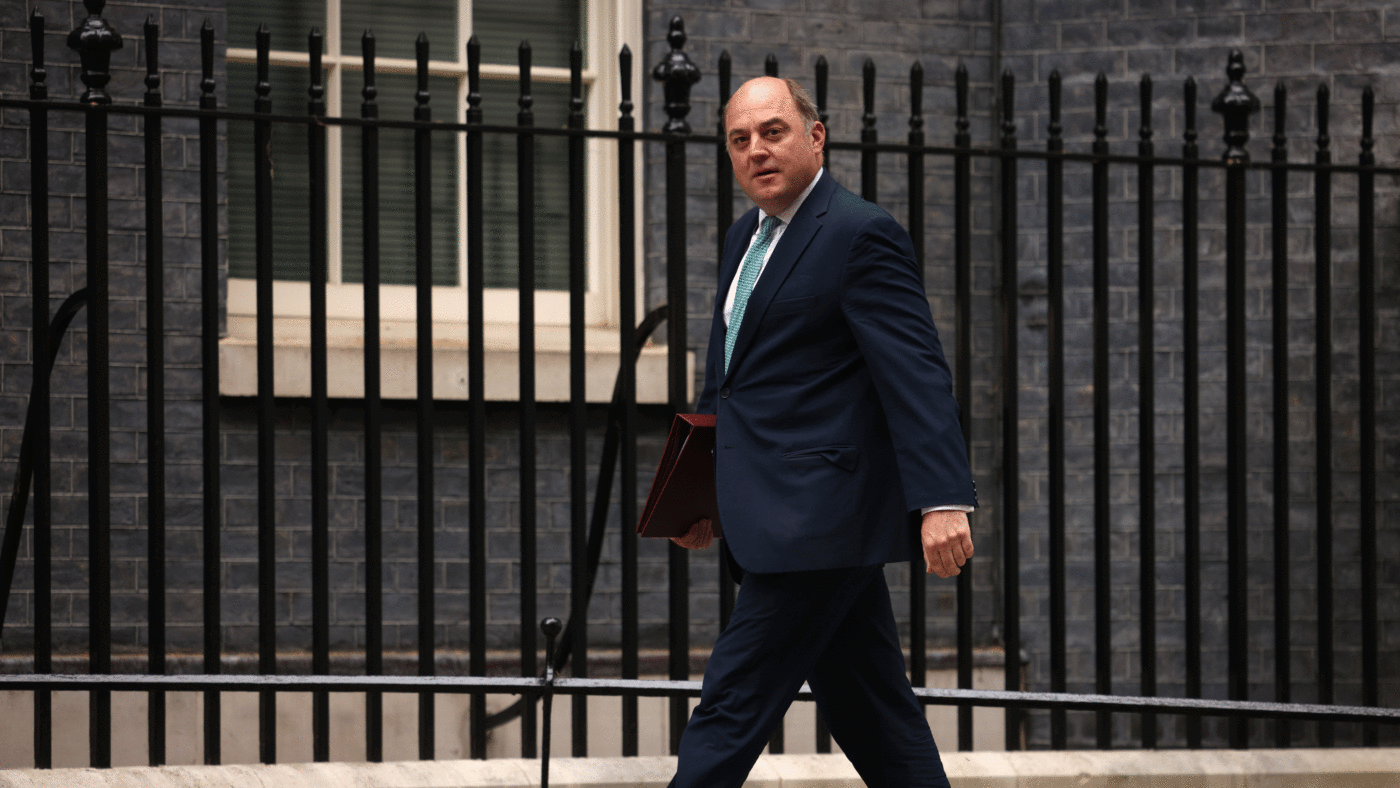It is important for those of us who cover British politics for a living to be vigilant against becoming, if such a thing is possible, too jaded. Not every development is a symptom of a deep underlying trend; sometimes a personal decision is just that.
Nonetheless, Ben Wallace’s announcement that he will step down from the Cabinet at the next reshuffle will be widely read, fairly or not, as a fresh vote of no confidence in the Conservatives’ prospects, and a blow to a government which is not long on widely respected senior members.
Yet whilst this development has taken many commentators (including this one) by surprise, in retrospect it perhaps ought not to have done. There have been plenty of auguries that the Defence Secretary had at least one eye on life after Westminster, from his twice declining to seek the Tory leadership to his unsuccessful bid to become Secretary General of Nato.
Wallace has been an MP since 2005, and before that an MSP from 1999. As I wrote earlier this month, politics demands a lot of sacrifices from people, both financially and in terms of family life. Positions such as Defence or Northern Ireland, with their additional security requirements, must take an even greater toll.
There is thus no necessary mystery at the heart of this decision. There may well be other reasons, and people will inevitably speculate about them. But the idea that a quarter-century in front-line politics might be enough is perfectly plausible.
It is a blow, nonetheless. Over the past few years Wallace has stood out amongst the Cabinet, not least because of his sheer longevity in what has been a period of extraordinary churn at the top of government. That a man appointed by Boris Johnson in 2019 is leaving on more or less his own terms in 2023 is, by recent standards, remarkable.
This recognition by successive prime ministers is mirrored at the grassroots; the Defence Secretary has topped ConservativeHome’s Cabinet League Table for over a year, even as the ratings of other individuals and the Cabinet collectively have fluctuated considerably.
Perhaps this was in part down to the nature of the defence brief, with its relatively low exposure to controversial domestic policies and issues. But whoever succeeds Wallace may struggle to replicate the magic. They will not have the opportunity to repeat his staunch early support for Ukraine, and inherit an in-tray which includes a fresh tranche of troop cuts and a very difficult report by the Defence Select Committee into the military’s woeful procurement record.
Those stories also show that there are limits to what even a well-regarded Secretary of State can accomplish in government.
As I have written previously, no amount of talk about how we are entering a dangerous century is likely to outweigh the brute fact that we are also entering a time of increasingly severe pressure on the public finances. However short-sighted hacking away at the Armed Forces might be, Defence remains an easy cut compared to tackling high-spending domestic departments such as Health and Social Care.
Indeed, it may now be more vulnerable than before. Wallace was a Defence Secretary who preceded the current government and had an independent reputation; his successor, whatever their individual qualities, will be Rishi Sunak’s appointee, and very likely have less capacity to resist whatever slimline vision for the Armed Forces emerges from the Treasury’s calculations.
On the other hand, there could be an upside to a new Secretary of State who hasn’t had time to go native. The Defence Committee report into procurement is a call to arms – and the MoD’s historical reluctance to let the rest of government or the Public Accounts Committee take a proper look at their books is almost certainly part of the problem. If Wallace’s successor can push through greater scrutiny for defence spending, it would be a worthwhile legacy.
Finally, and despite the perfectly plausible personal case set out above, this is one more resignation in a long list of of Conservative MPs standing down at the next election. Whatever the party’s official line, that cannot help but be dispiriting to the troops – and in first-past-the-post, the result in a close-run seat can hinge on which side was better at identifying and getting out their vote, street by street.
Click here to subscribe to our daily briefing – the best pieces from CapX and across the web.
CapX depends on the generosity of its readers. If you value what we do, please consider making a donation.


